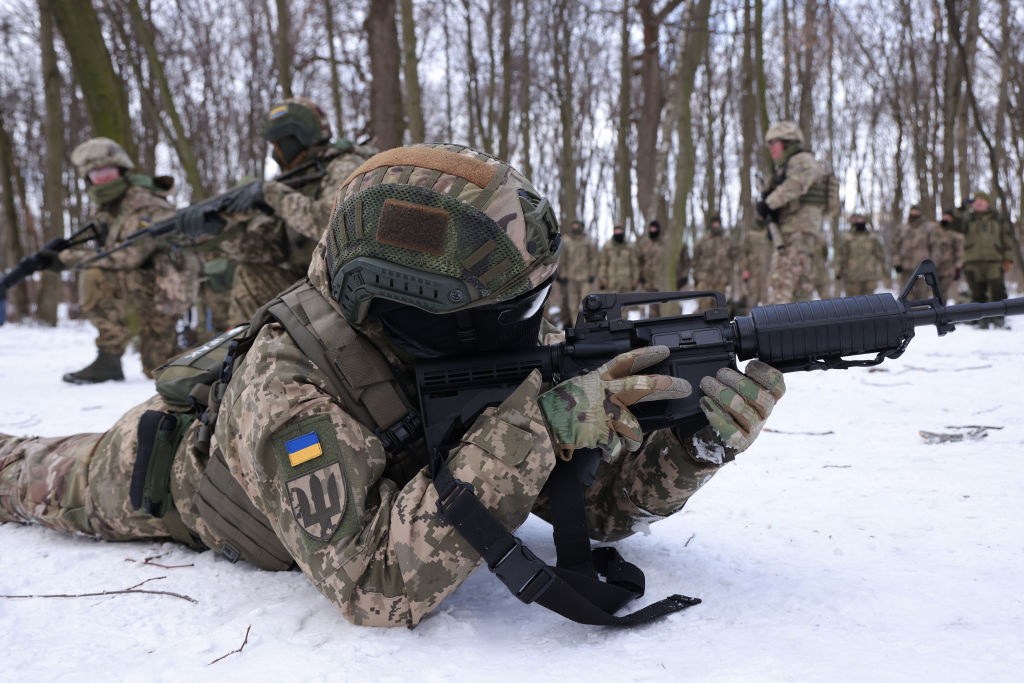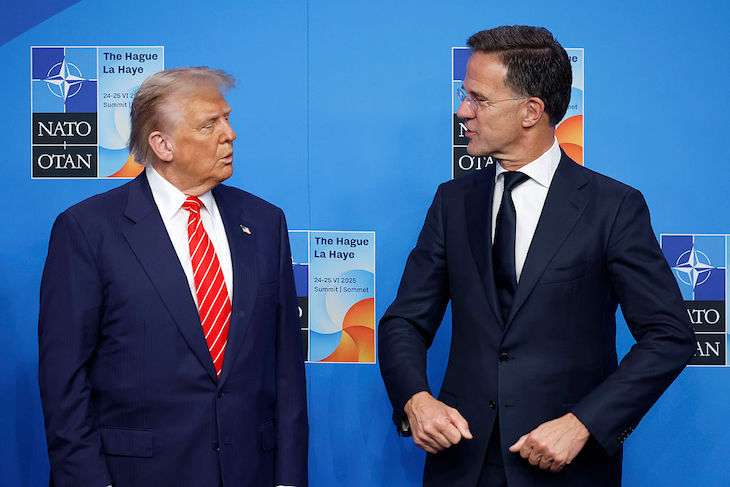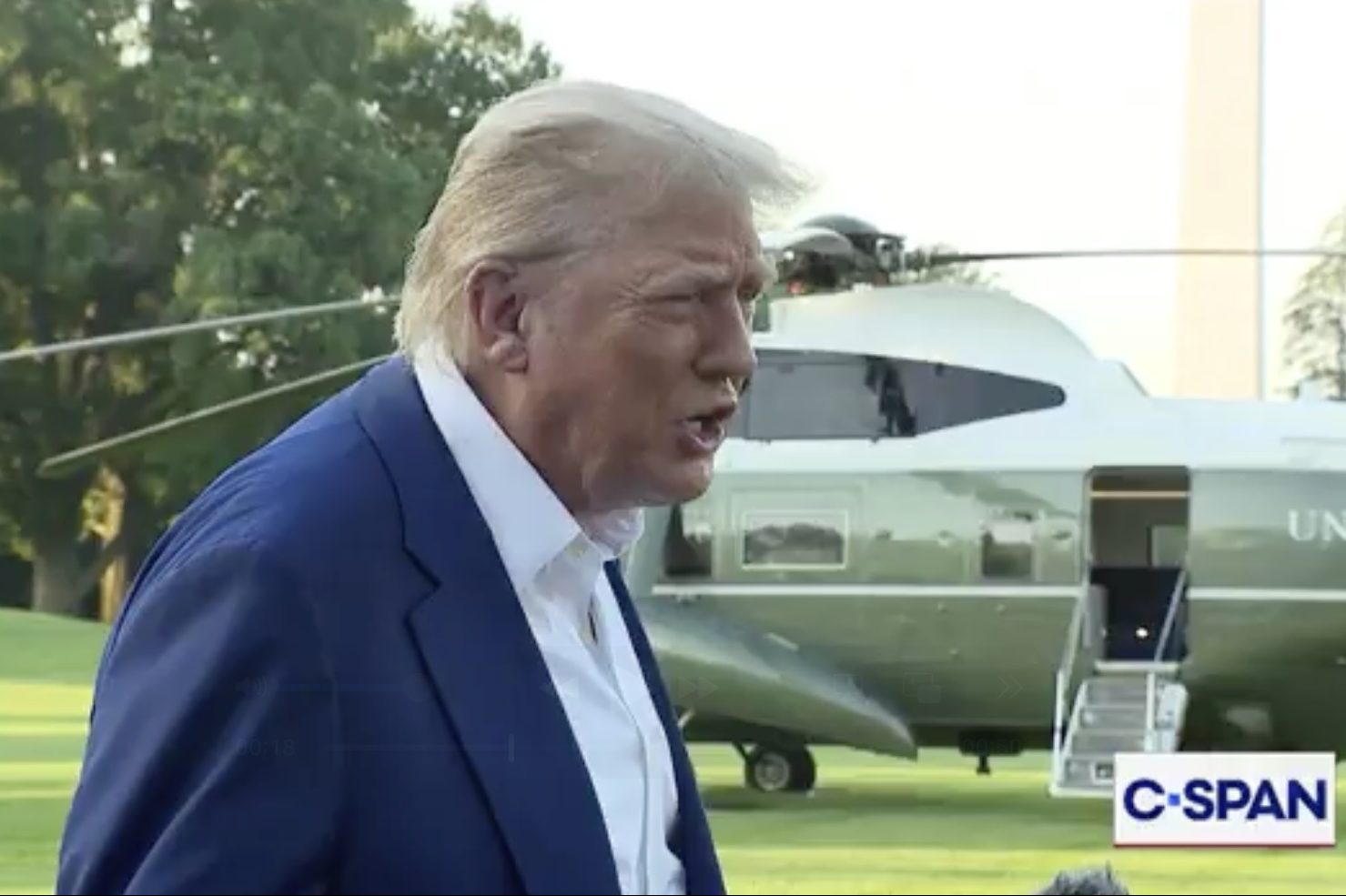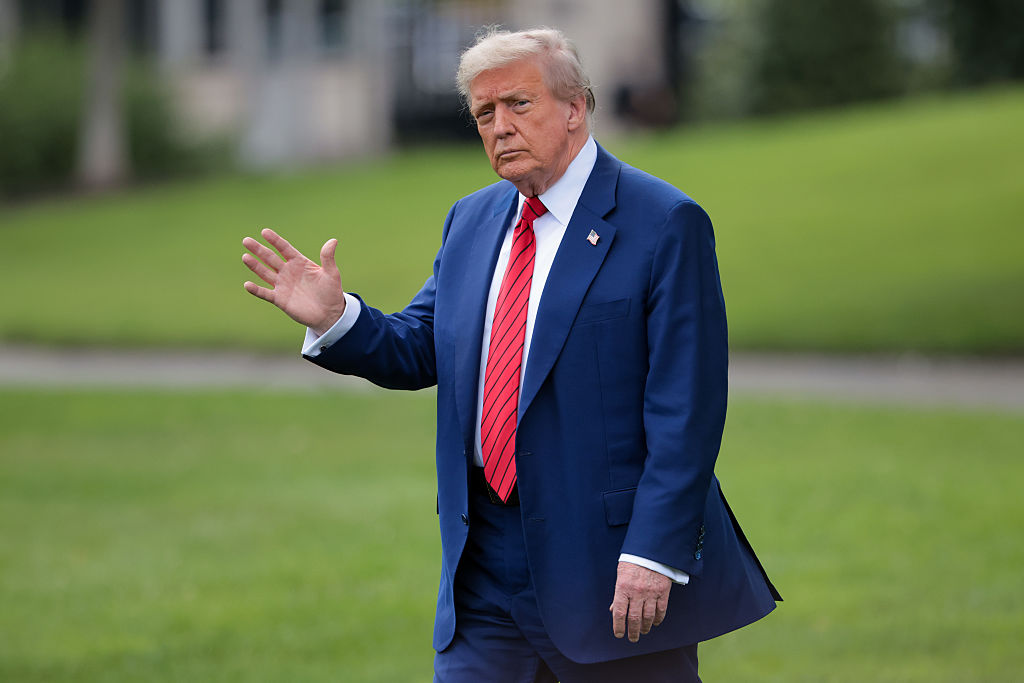President Biden said this week that a “minor incursion” of Russian troops into Ukrainian territory would not bring about the severe economic sanctions the White House threatened in response to a “significant invasion.” His counterpart in the Kremlin can probably hardly believe his luck. Effectively, Vladimir Putin has been given carte blanche by the West to launch military operations against Ukraine.
Of course, the fact that there is no definition of what constitutes a “minor incursion” gifts the White House a preemptive get-out clause from having to truly confront Moscow. Considering the size of Ukraine and the vast numbers of Russian forces available for deployment, even the seizure of cities and swathes of territory could be dismissed by Washington as “minor” when compared to the prospect of a full-scale invasion of Ukraine.
White House press secretary Jen Psaki said that “President Biden has been clear with the Russian president: if any Russian military forces move across the Ukrainian border, that’s a renewed invasion”. The damage, however, has arguably already been done. The mention of “minor incursions” produced outrage in Kyiv, and hints that Washington will be looking for an excuse not to act. This is in keeping with America’s consistently tepid responses to previous regional Russian military action.
For its part, Europe’s disunity will add further encouragement for Russian military action, with Germany’s increasingly subservient behavior towards the Kremlin at odds with the tough stances of the Baltic states and Poland. Indeed, this weekend saw the head of the German Navy resign after making publicly flattering remarks about the man in the Kremlin.
President Putin will therefore be carefully considering his options — and analyzing how best he can assert Russian control in the region, keep the West off-balance and face no consequences.
The prior form of both Russia and the West gives some indication of what might happen next. Border skirmishing, cyber attacks and military exercises preceded Russia’s 2008 invasion of Georgia and its 2014 operations against Ukraine. These have already come to pass in the current crisis.
The pretext for an assault is also already being prepared, with Russian television networks warning of alleged dangers from Ukrainian military action against the Donbas separatists, while the US claims that Russian special forces are already in Eastern Ukraine to carry out a false-flag operation.
In Georgia in 2008 and Ukraine six years later, the Kremlin justified its use of force by claiming it was protecting Russian citizens — so military action of some sort appears likely.
But the scale and target of a campaign against Ukraine are less certain. Russia is already carrying out military exercises with its Belarusian allies on Ukraine’s northern border, perhaps intending to draw Kyiv’s attention — and perhaps troops — away from the eastern flashpoint. Both the city of Chernihiv and Kyiv itself would be threatened by an attack from the north.
President Zelensky meanwhile seems to believe that Kharkiv, a city under Ukrainian control close to Russia’s eastern border, will be a target. Kharkiv has been the site of unrest between pro-Western and pro-Russian factions, with a number of isolated incidents of bomb blasts and the 2014 shooting of the city’s mayor. Although the population is considered to be largely supportive of the Kyiv government’s Western aspirations, the majority of Kharkiv’s people are Russian-speaking and protecting ethnic Russians is a trademark excuse for Putin’s military adventures.
The port of Mariupol is perhaps a more likely target — and a safer choice for the Kremlin. Located in the Donbas region, the city remains under Ukrainian control after being recaptured in 2014, but its port remains blockaded by the Russian Black Sea Fleet. As the principal land-link between the Russian-occupied territories of the Crimea and Donbas, taking the city may fall within the category of President Biden’s “minor incursions”. The fact that the Mariupol population is largely pro-Russian gives less incentive for the West to take any action while allowing Putin to portray himself as a liberator. A short, sharp campaign against Mariupol would serve Putin’s purpose of claiming more territory, damaging the administration of President Zelensky and weakening the West’s image on the international stage.
The latter two goals arguably have more benefit to the Kremlin than the conquest of Mariupol. The UK Foreign Office has released a report claiming that President Putin has already lined up which Russia-aligned Ukrainian MPs will be installed in Kyiv, leaving open the frightening possibility of an assault on the capital. Likewise, the demonstrably divided nature of NATO’s response could sow the seeds for the eventual collapse of the organization. An alliance the size of NATO cannot be sustainable when its members no longer perceive external threats in the same fashion.
A weak Western response to Russian action in Ukraine signals to the world that Brussels and Washington will not defend the values they claim to champion. The effects of that message would be felt far beyond Ukraine. The previous fifteen years have shown that an emboldened Russia benefits nobody in the former Soviet Union who values democracy; it would be deeply naive to think that Xi Jinping will not be watching the ongoing events and wondering if China can settle its own score against Taiwan in the near future. War in Ukraine simply cannot be dismissed as a matter of no concern to the Free World.

























